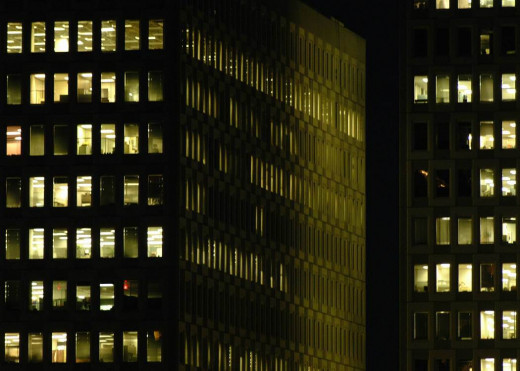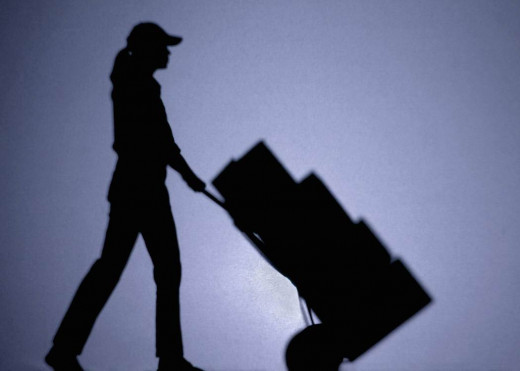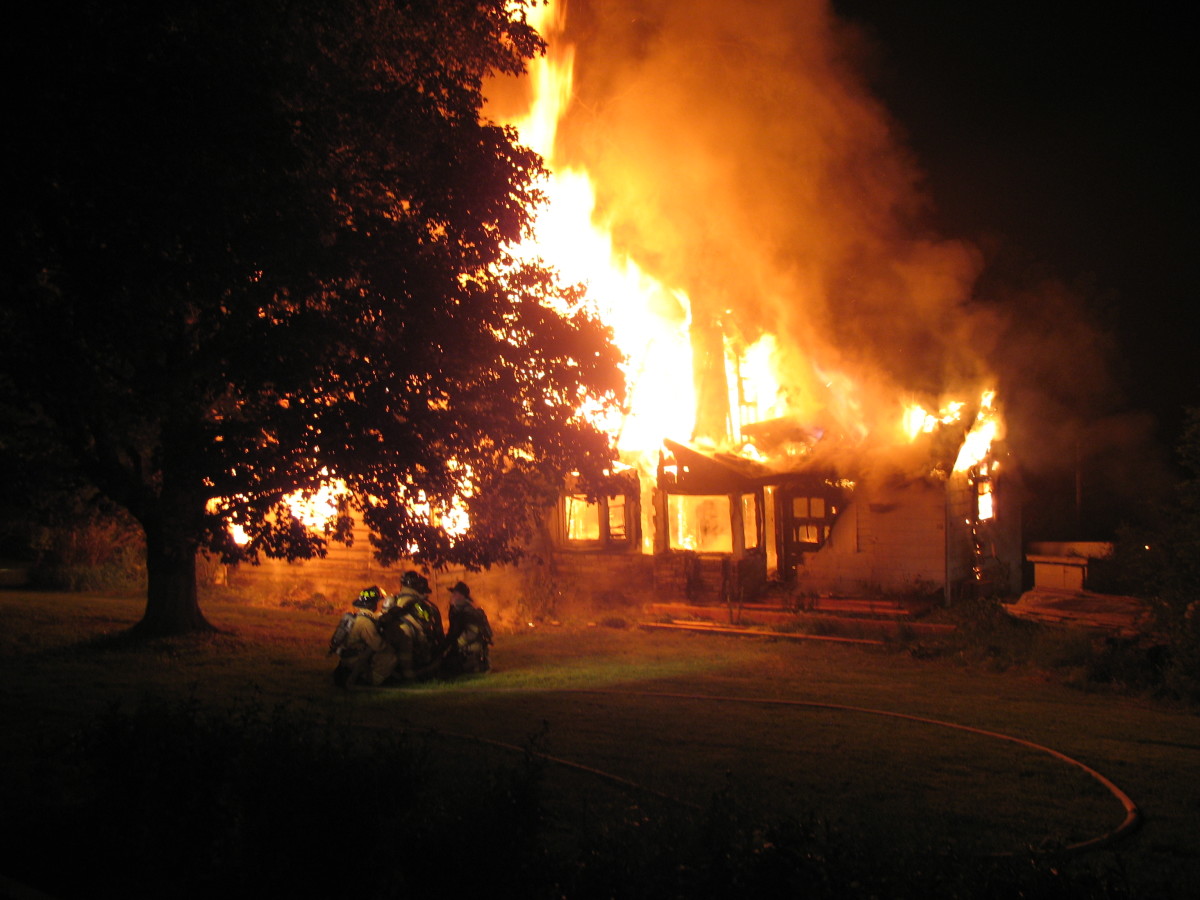Healthy Tips for Graveyard Shift Workers

Graveyards Shifts Can be Great
Graveyard shifts can present some great opportunities, and are integral parts of productiveness for many careers. In many positions the Graveyard shift provides a chance to be self directed, work with a unique clientele, interesting employement opportunities, see and experience things that many others don't, and work minus the distraction of the daytime hustle & bustle.
For some, such as myself, there is no better shift than a graveyard, for others it can be an incredible adjustment. Learning a little bit about how your mind and body function on an altered schedule can give you a great advantage to making the graveyard shift work in your favor, instead of against you.
Years of collective experience have provided some insight into much of what works well for the all night shift worker, making the shift manageable and appealing.
Modified Wake Sleep Schedule
Creating a regular daytime sleep schedule is one of the more challenging tasks for the graveyard shift worker since the sun still rises, the chores of the day relentlessly go on, as do the day people, with their day work, school, events, & activities.
In order to help avoid the abundance of disturbances presented during the day here are some tips to help regulate daytime sleeping.
- Keep the space you sleep in as dark as possible, sunlight signal the brain that it is time to be awake, even if you are sleep deprived. Creating an environment as close to nighttime conditions as possible will help tremendously.
- Ear Plugs are a life saver for the daytime sleeper. There are many noises during the day that serve to call the human brain to attention interrupting and in some cases preventing sleep all together. Ear Plugs can block out that unneeded stimuli and allow the mind to rest easy.
- Temperatures that are too hot, or too cold can disrupt sleep, or sleep quality at anytime. Keeping room temperatures comfortable for daytime sleep is critical, however it can be a bit tricky as the human body slows the heart rate dramatically in the early morning hours, initially your body may feel as if it is unnaturally cold after your shift, then as you go into deep sleep (which often happens almost instantly after an all night-er) your body temperature will rise dramatically. Using blankets to compensate for the change is usually the best option because removing a blanket is much quicker and more easily adjusts temperature than does the thermostat.
- Do your very best to pick a sleep time and stick to it as best you can.
- Try to get at least 6hrs of sleep. This can also be challenging, most graveyard workers find that they will abruptly wake after 2 - 4 hours of sleep, most likely due to circadian rhythm triggers. 2-4 hours of sleep is not adequate for alertness, mood stability, and physical health. If it is not possible to go back to sleep then make sure to nap later in the day.
- If possible limiting your shifts to no more than 3 in a row is best. Your circadian rhythms will not completely reset themselves if you can limit the repetition to 3 shifts in a row or less. More than 3 shifts consecutively overtime will cause a complete readjustment of the wake sleep cycles set by your circadian clock, this condition is referred to as shift workers disorder. The good news is that shift workers disorder can be reversed if needed, it can cause some lifestyle disruptions, and inconveniences, but with discipline it can be corrected.
More About; Sun, Sleep, Vitamin D & Overall Health
Night Shift Work & Sun Exposure
Sunlight provides nutrients, & regulates many functions of the human body. Exposing yourself to the sun each day will allow your body to maintain connection to it's circadian clock, keeping you from completely turning into a nocturnal creature. Internal circadian rhythms regulate pretty much every body function such as; digestion, hormones release, mood, brain chemistry, organ function, and of course wake & sleep cycles.
The sun also provides vitamin D. Vitamin D is needed for a variety of processes in the body that promote bone health, calcium absorption, metabolism & weight management, immune system enhancement, and more. Low levels of vitamin D can result in calcium deficiency among other significant health issues.
Make it a point to get at least 20 min of sunscreen free sun exposure each day, adjusting accordingly to potential exposure based on climate/seasonal variation.
Keep Moving

Stay Active to Stay Awake
The human body will begin to go deeper, and deeper relaxed if sedentary as your internal body temperature drops. By keeping your mind & body active you will effectively counter the chances of nodding off during your shift. Physical activity will keep the heart pumping, and oxygen surging throughout your system. Using your mind will help keep your brain functioning at a higher level of alertness.
Some suggestions for activity to maintain alertness during Graveyards, if possible:
- Walk around
- Listen to music
- Stand up
- Watch TV, or read. (these activities for some can promote sleep, use only those that help keep you alert).
- Do crossword puzzles or play games
- Drink water
There are many more possibilities, some suited to certain types of work better than others. Find things that work the best for you & keep things moving thorugh the night.

Responsible Stimulant Use Can Help Get You Through The Night
Stimulants such as caffeine, energy drinks, and dietary supplements, can assist in alertness and help keep the metabolism active throughout the nighttime hours. The keys to getting the most benefit from stimulants is moderating their use, timing consumption, and finding the best fit that has most natural effect on your system with little to no side effects.
It is a good idea to cut off consuming stimulants at a certain point throughout the night, the time may vary depending upon the length of your shift and your personal physiology. Most people find a good cutoff point to be around 1:30am in order to keep you going through the early morning hours, while allowing the stimulant to work it's way through your system so that sleep is not impeded once your shift is over.
If you find that you are having side effects such as: severe or chronic headache, unusually depressed mood, extreme fatigue, or feel as if you can not function without a particular stimulant, it is a good idea to decrease or discontinue consuming that product. These can be symptoms of withdrawal, sometimes referred to as rebound. If this is being experienced your body chemistry has become imbalanced and correction is needed. Seek the help of a physician if symptoms persist.
Abusing Amphetamines is directly harmful to your short term, and long term health in a multitude of ways. Please seek addiction counseling if you have found it necessary to abuse prescription or non prescription drugs to stay awake.
Good Nutrition & Exercise
In any circumstance vitamins, nutrients & exercise assist our body in remaining healthy & strong. For the graveyard shift worker these things can be especially important as they are placing their mind and body at a higher risk of being compromised. Night work requests the body to function during times that the bodies metabolism changes dramatically, the brain shifts into alternate consciousness, & the immune system would work to heal the body.Essentially overriding these natural functions by postponing sleep puts the graveyard shift worker at higher risk of a variety of health issues including; weight gain, digestive disorders, prolonged sickness, and diminished memory & cognition.
In order to prevent these health issues from creeping into your life maintaining a healthy diet and exercise regiment are essential.
- Eat a well balanced diet with plenty of fruits & vegetables, especially while you are on shift. Fruits & vegetables provide the bulk of vitamins and nutrients, many of which are quickly depleted by the night shift worker.
- Get regular exercise in your free time to keep all functions of the body performing at their peak.
- Daily multivitamins that support brain, digestive, and immune health can be great enhancements to help support robust functioning of these biological systems.








